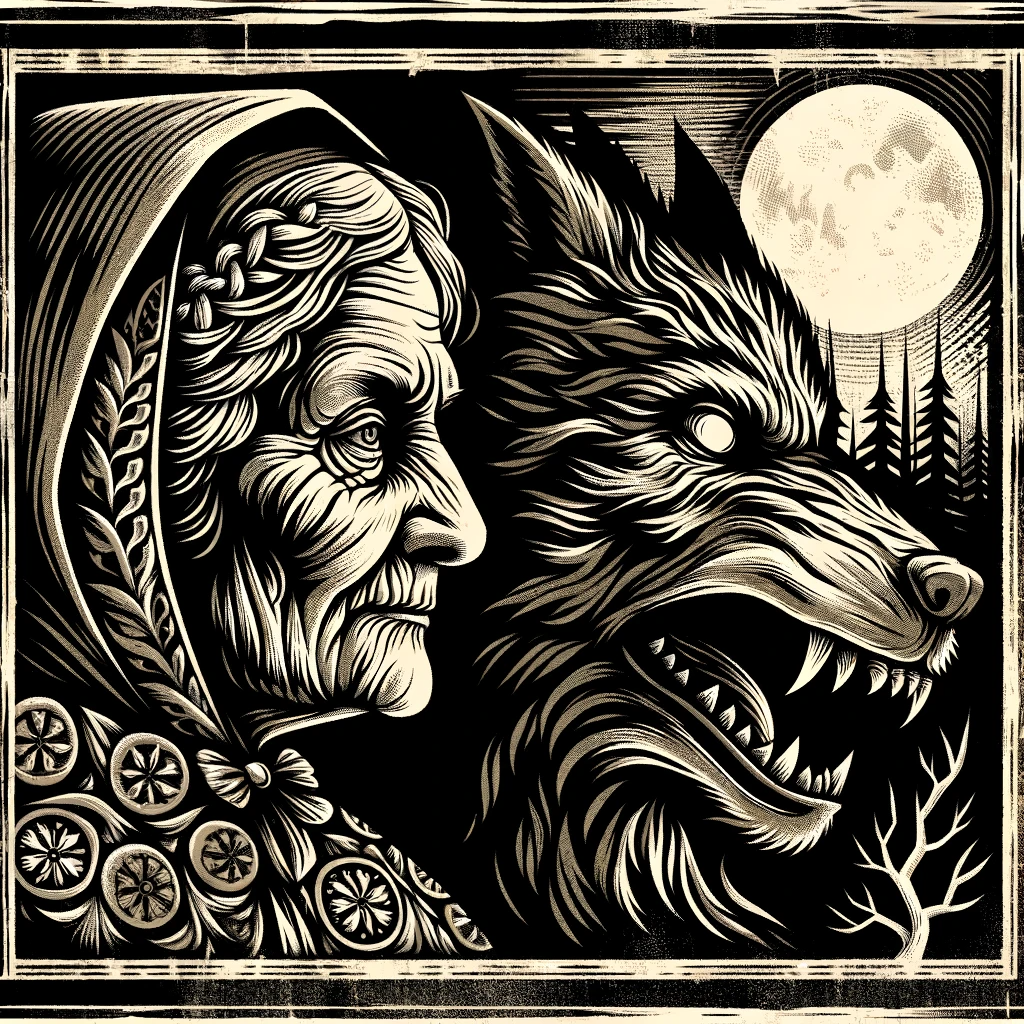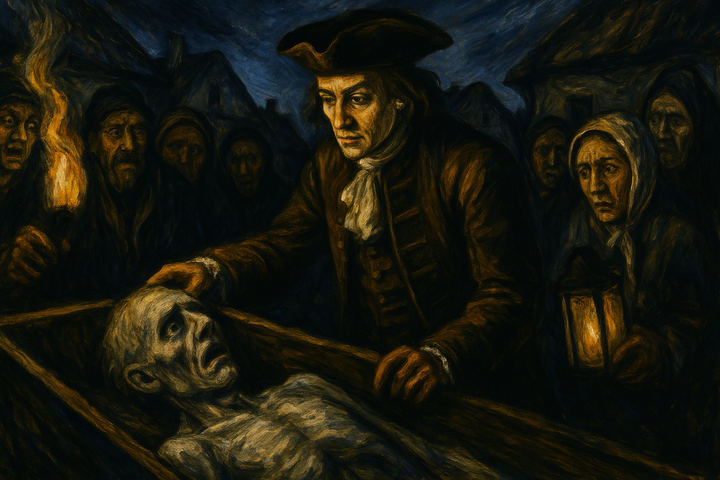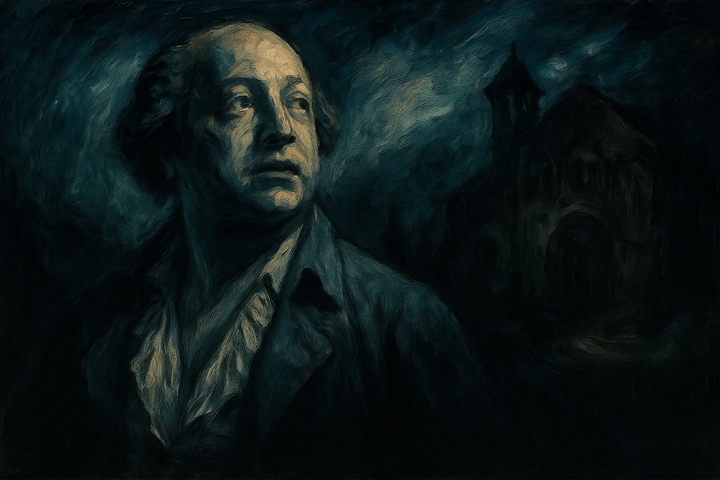A Tale of a Woman Turning into a Wolf from Pleternica, Croatia

In the picturesque town of Pleternica, Croatia, an intriguing story has been passed down through generations. It originates from the autumn of 1888 and was shared by Toma Milinković, a local farmer, with the mother of Friedrich S. Krauss. This story, filled with mystique and wonder, speaks of a peculiar event involving a transformation most extraordinary - a woman turning into a wolf.
In Trapari, not far from Pleternica, there lived a wealthy man who owned a large flock of sheep. These sheep were guarded by two shepherds and six dogs. However, every day, a wolf mysteriously appeared, devoured several sheep, and then vanished without a trace. This continued until three-quarters of the flock were lost.
The head of the household, frustrated by the continuous loss, was advised by someone that this was no ordinary wolf. The suggestion was to dress in all his clothes inside out, from his shoes to his hat, early in the morning, drive the sheep to the stream, climb a tree, and watch. He did just that.
Around noon, an old woman from the neighborhood approached the stream, carrying a bucket. She lay on the grass, performed three somersaults, and astonishingly transformed into a wolf. She then devoured the fattest ram, leaving nothing behind, not even the wool or bones. Recognizing the woman, the man decided against shooting her and instead confronted her at her home.
After reverting to her human form, the old woman was confronted and severely reprimanded. When her sons learned of her deeds, they chastised her severely. From that day on, she never transformed into a wolf again, nor did she harm any more sheep.
Unraveling the Enigma: Folklore, Fact, or Fantasy
This captivating story, blending myth and mystery, is a testament to the rich folklore of the Slavic people. It was documented in the book "SLAVISCHE VOLKFORSCHUNGEN: Abhandlungen über Glauben, Gewohnheitrechte, Sitten, Bräuche und die Guslarenlieder der Südslaven", primarily based on the personal research of Dr. Friedrich S. Krauss and published by Wilhelm Heims in Leipzig, 1908.
Much like a potion brewed by a skilled alchemist, this tale mixes the ordinary with the extraordinary, leaving us to wonder about the secrets hidden within the mundane. Is it merely a folktale, or is there a kernel of truth in this mystic transformation? The answer remains shrouded in the mists of time, a riddle waiting to be solved.




